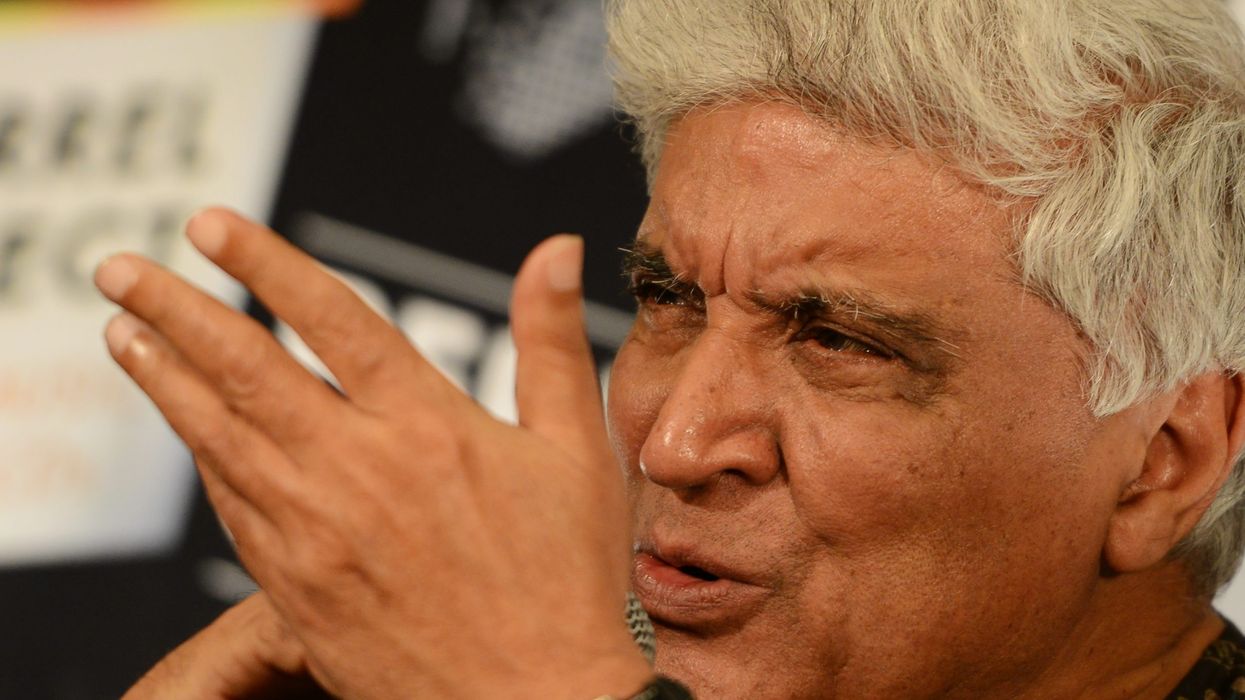Lyricist-writer Javed Akhtar on Friday said his comments on the 26/11 Mumbai terror attacks during his recent visit to Pakistan have become "too big" but he had to set the record straight on certain things while he was there.
Calling himself as someone who has made remarks that were "slightly controversial and sensitive in nature" in India, Akhtar said he was not scared to speak his mind while in Pakistan.
Akhtar, who was in Pakistan for a festival in memory of celebrated Urdu poet Faiz Ahmed Faiz last week, said Pakistanis should not feel offended when India talks about the 2008 terror attack.
"It became too big. It's embarrassing for me. Now I think I should not gloat over it. When I came here, I felt like I won World War III. There were so many reactions from people as well as the media that I just stopped taking calls. I was embarrassed that 'aisa maine kya teer maar diya'. I had to say these things. Should we keep quiet?" the lyricist said during a session at the ABP Ideas of India 2023 Summit.
The writer-poet said he has now got to know that his comments have caused a stir in Pakistan.
"I got to know that people are abusing me there. They are asking, 'why was he given a visa?' Now I will only remember what kind of place it was. I have been saying things that are slightly controversial and sensitive in nature in the country where I was born, I live and where I will die, then what was to fear there? When I don't feel scared here, then why would I fear anything there?" The lyricist-poet had also spoken about Pakistan not welcoming Indian artistes, the way India welcomed talent from across the border.
At the summit, Akhtar said he had to answer that question as it came from the audience.
"During a Q&A session in a huge hall... They were asking very friendly and warm questions. It was going on nicely but someone asked me that they meet us very nicely but they don't get that warmth from us. There was little room for me to move away without answering, so I did. And in the most polite manner possible. I told them to set their record right," he said.
Akhtar said India had hosted ghazal great Mehdi Hasan and even Faiz Ahmed Faiz visited the country during Atal Bihari Vajpayee's time.
"We don't have anything against them but they never hosted Lata Mangeshkar." The writer, however, said "no country is a monolith" and should not be defined by the policies of the government and establishments. "The fact is that it is very unfortunate that we're unaware that it is a huge segment of Pakistan that wants to have good relations with India and it is totally understandable. They are seeing a country next door that witnessed so much development, industries, corporates, culture, films, and music. So naturally, an average citizen would be curious and would like to come and witness this himself," he said.
He also said that it is not wise to club "every Pakistani with the Pakistani army, bigots, and its establishments".
"That's not a wise thing to do. We should see to it they get more credibility. When I went, the kind of reception I got from young people, and students was unbelievable. If I say all Pakistanis are the same, then it wouldn't be correct," he added.
(PTI)




